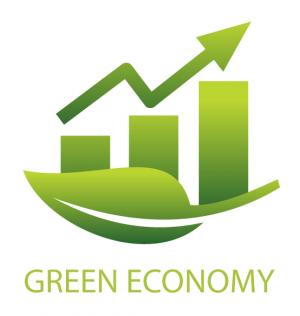Waste Concern: Public/Private partnership and community based composting in Dhaka, Bangladesh
Description
Source: Shanghai Manual: A Guide for Sustainable Urban Development in the 21st Century (2010)
Since its launch of solid waste management projects in September 1998, Waste Concern has served 30,000 people in Dhaka city and 100,000 people in 14 other cities and towns in Bangladesh, including slums and low and middle-income communities. Its services include waste collection, separation and composting. The centralized composting project in the city of Dhaka warrants special mention. The composting plant has a capacity of 700 tons per day and processes organic waste from the city of Dhaka in three phases. The project has led to many economic, social and environmental benefits such as new job opportunities to the communities and better livelihoods in the region.
The project included very interesting financial features which made it viable through community involvement and public private cooperation. The communities received door-to-door collection service and shared the cost of waste collection by paying a monthly fee based on their affordability. The private stakeholder had joint venture partners that included Waste Concern and its financial partners (banking institutions). The total investment required for the project was Euro 12 million. The mode of finance was 38 per cent equity, 45 per cent as soft loan and 17 per cent as loan from a local bank in Bangladesh.
A private sector company was involved to ensure the sale of compost by carrying out enrichment of the compost with nutrients and its subsequent distribution in the market. As a result, 75 per cent of the total revenue of the project came from sale of compost. The project was also successfully registered as a Clean Development Mechanism (CDM) project under United Nations Framework Convention on Climate Change (UNFCCC). Thus, the remaining 25 percent of the project revenue came from the sale of certified emission reduction (CER) credits, making the project financially viable and profitable.
SDGS & Targets
Goal 8
Promote sustained, inclusive and sustainable economic growth, full and productive employment and decent work for all
8.1
8.1.1
Annual growth rate of real GDP per capita
8.2
Achieve higher levels of economic productivity through diversification, technological upgrading and innovation, including through a focus on high-value added and labour-intensive sectors
8.2.1
Annual growth rate of real GDP per employed person
8.3
Promote development-oriented policies that support productive activities, decent job creation, entrepreneurship, creativity and innovation, and encourage the formalization and growth of micro-, small- and medium-sized enterprises, including through access to financial services
8.3.1
Proportion of informal employment in total employment, by sector and sex
8.4
Improve progressively, through 2030, global resource efficiency in consumption and production and endeavour to decouple economic growth from environmental degradation, in accordance with the 10-Year Framework of Programmes on Sustainable Consumption and Production, with developed countries taking the lead
8.4.1
Material footprint, material footprint per capita, and material footprint per GDP
8.4.2
Domestic material consumption, domestic material consumption per capita, and domestic material consumption per GDP
8.5
8.5.1
Average hourly earnings of female and male employees, by occupation, age and persons with disabilities
8.5.2
Unemployment rate, by sex, age and persons with disabilities
8.6
8.6.1
Proportion of youth (aged 15-24 years) not in education, employment or training
8.7
Take immediate and effective measures to eradicate forced labour, end modern slavery and human trafficking and secure the prohibition and elimination of the worst forms of child labour, including recruitment and use of child soldiers, and by 2025 end child labour in all its forms
8.7.1
Proportion and number of children aged 5‑17 years engaged in child labour, by sex and age
8.8
Protect labour rights and promote safe and secure working environments for all workers, including migrant workers, in particular women migrants, and those in precarious employment
8.8.1
Fatal and non-fatal occupational injuries per 100,000 workers, by sex and migrant status
8.8.2
Level of national compliance with labour rights (freedom of association and collective bargaining) based on International Labour Organization (ILO) textual sources and national legislation, by sex and migrant status
8.9
By 2030, devise and implement policies to promote sustainable tourism that creates jobs and promotes local culture and products
8.9.1
Tourism direct GDP as a proportion of total GDP and in growth rate
8.10
Strengthen the capacity of domestic financial institutions to encourage and expand access to banking, insurance and financial services for all
8.10.1
(a) Number of commercial bank branches per 100,000 adults and (b) number of automated teller machines (ATMs) per 100,000 adults
8.10.2
Proportion of adults (15 years and older) with an account at a bank or other financial institution or with a mobile-money-service provider
8.a
8.a.1
Aid for Trade commitments and disbursements
8.b
By 2020, develop and operationalize a global strategy for youth employment and implement the Global Jobs Pact of the International Labour Organization
8.b.1
Existence of a developed and operationalized national strategy for youth employment, as a distinct strategy or as part of a national employment strategy
SDG 14 targets covered
Deliverables & Timeline
Resources mobilized
Partnership Progress
Feedback
Action Network


